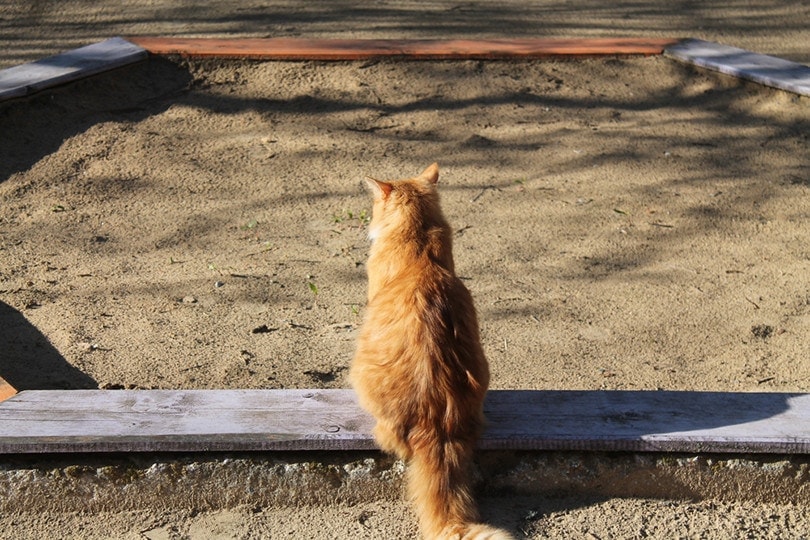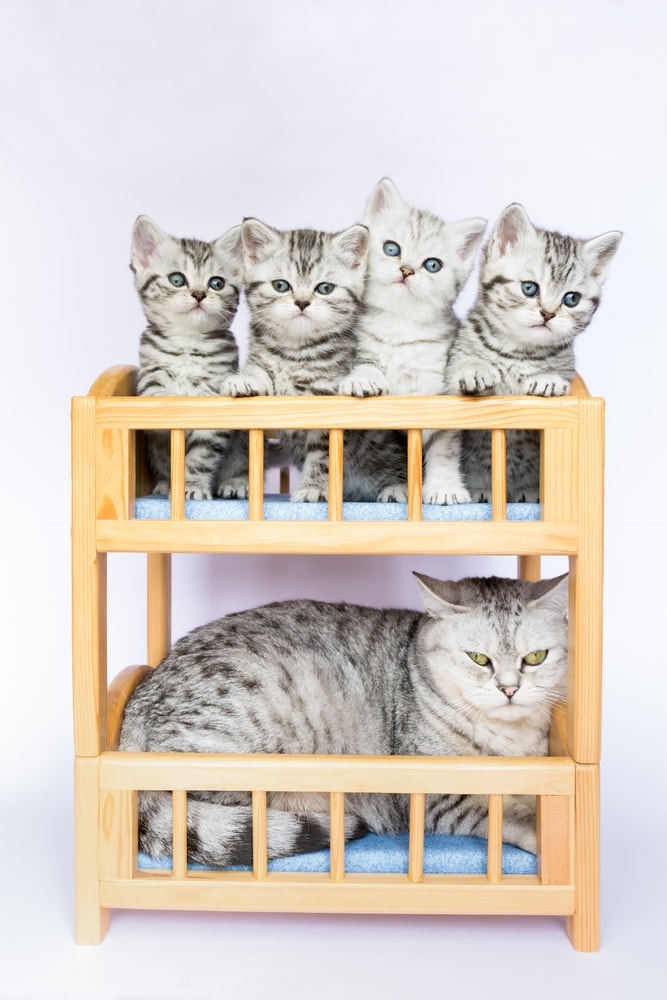Cat Peeing in the Sink? 7 Potential Reasons & Solutions
Updated on
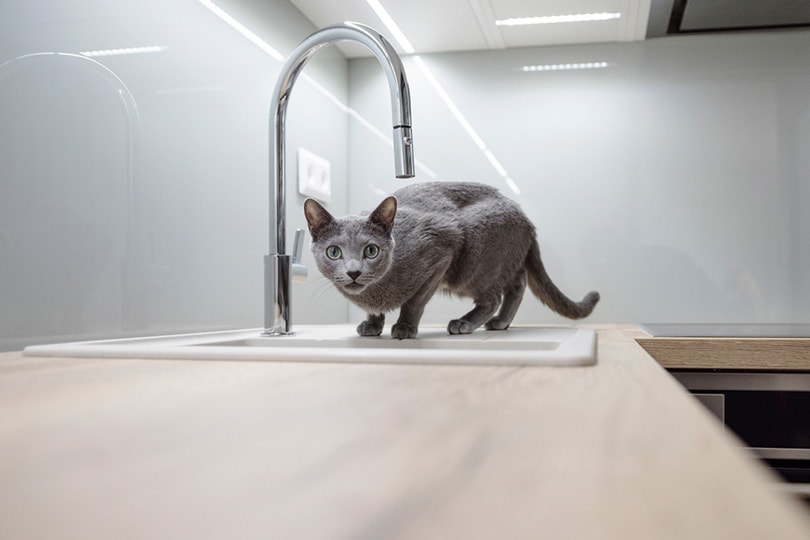
We all know that cats like to hang out in and around the sink. While most of the time they are either looking for a secure spot off the ground to relax or they want to sneak a quick drink from the running water, sometimes owners will run into a more unfortunate problem.
If your cat has developed the bad habit of peeing in the sink, you are undoubtedly going to be looking for solutions to this unsanitary issue. It is important to understand the potential reasons why your cat is doing this in order to come to a viable solution. Here, we will take a look at why your cat is peeing in the sink and what you can do about it.
The 7 Reasons a Cat Pees in the Sink
1. Location of the Litter Box
Not only are cats finicky little creatures, but they are also private, especially when it comes to relieving themselves. Even the most social cats are going to prefer their litter box be in a private area away from the commotion of the household.
In addition, if you had their litter box in a specific area and recently moved it, they could simply be uncomfortable with the change and are opting for the next best place.
What You Can Do
If you believe that the location of the litter box could be the reason your cat has picked up the habit of peeing in the sink, try moving the litter box to a location in the home that is away from all the foot traffic. If you do move the litter box, make sure you comfortably introduce your cat to the new location and give them positive reinforcement when they take notice.
If you have recently moved the litter box, causing this new problem to begin, try moving the litter box back to the original location to see if that does the trick. You may just have a picky cat that does not take well to change. If you cannot move the litter box back to the original location, make sure access to sinks is cut off and lead them to the new location, offering cat treats, praise, and affection.
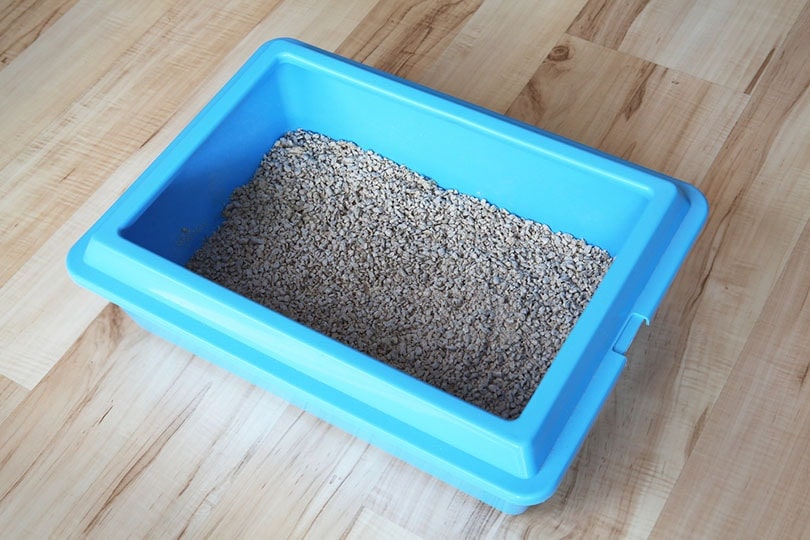
2. Not Enough Litter Boxes in the Home
A common problem that a lot of owners of multiple cats face is there not being enough litter boxes in the home for the number of cats. It is highly recommended that there be one litter box per cat, plus a minimum of one additional litter box. If one (or more) of your cats have begun using the sink instead of the litter box, this may be the reason.
What You Can Do
This issue can be easily solved by simply ensuring that there are enough litter boxes in the home to ensure each cat has a place to go. Once you have all the litter boxes you need, set them up in private, convenient areas around the home and introduce your cats to each new box. They will figure out amongst themselves who prefers which box.
3. The Litter Box Is Too Small or Uncomfortable for Your Cat
Some cats will have certain preferences when it comes to relieving themselves. Is your cat used to an uncovered box but recently switched to one with a hood or vice versa? There is also a chance the litter box is too small for your cat’s preference or the use of litter box liners is causing their apprehension.
What You Can Do
Getting to the bottom of this may call for a process of elimination. If you have recently switched to a new design of the litter box, you may try switching back to the older design that was within your cat’s comfort zone to see if that does the trick. If you feel the box is too small for your cat, try going up a size or two that way they have plenty of room to move around. If you have recently begun using liners, try removing them and see how it works.
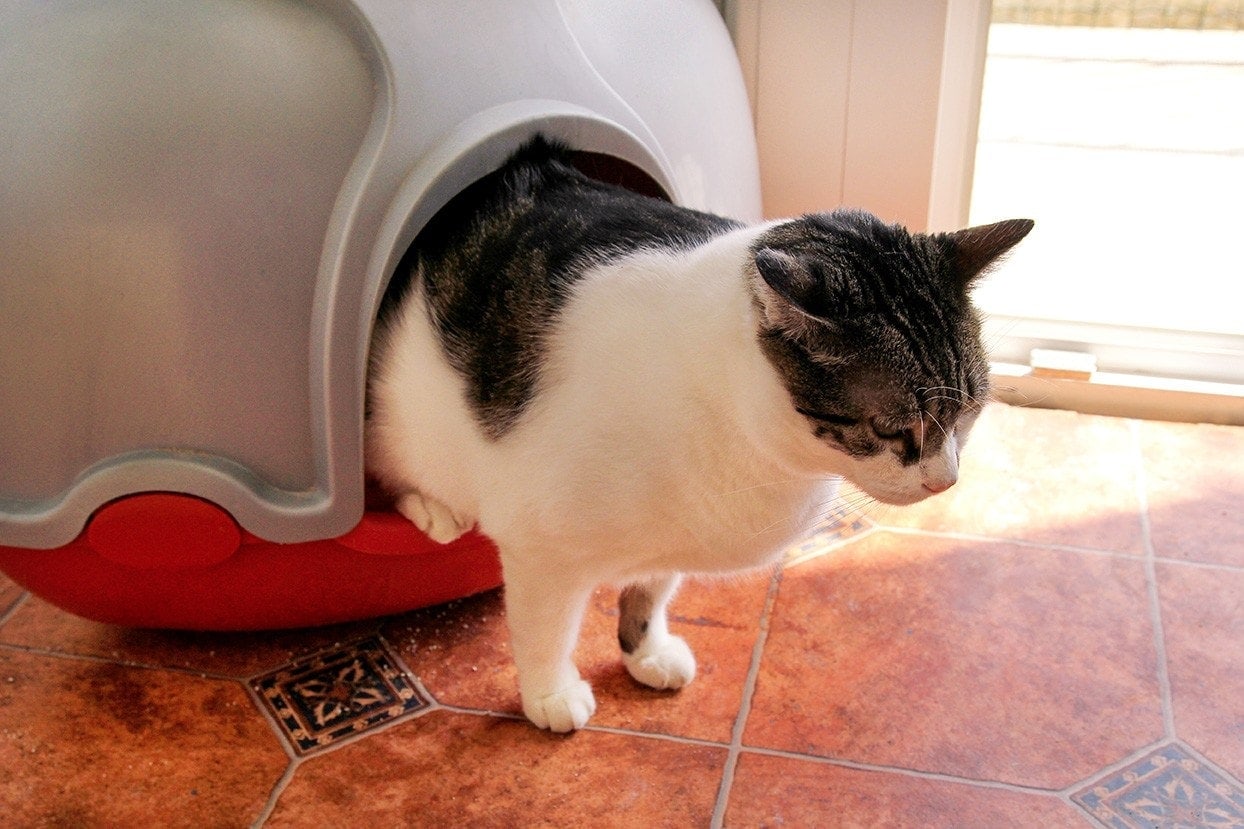
4. Health Conditions
Certain health conditions can cause cats to go outside the litter box. Issues such as urinary tract infections, bladder inflammation, and bladder or kidney stones are all examples of health conditions that have the potential to cause changes in bathroom habits.
What You Can Do
Any potential health conditions warrant a visit to the veterinarian. Your cat will need to be evaluated and properly diagnosed so that they can get the treatment they need. If you ever notice any unusual signs in your cat, whether it be physical or behavioral, it is best to contact your veterinarian right away so that you can get to the bottom of it.
5. Behavioral Issues
Stress, fear, recent change, or even quarrels among other cats in the house could cause your cat to resort to peeing in the sink. Even events that do not affect your cat directly can cause them stress.
Life events such as moving, bringing home a new family member or pet, rearranging the house, routine changes, or even having someone come into the house to do repairs can upset your cat and cause changes in their normal behavior.
What You Can Do
Try and think of what recent changes have taken place in your home. As mentioned, even the smallest of changes to routine can cause your cat stress. If peeing in the sink is behavioral-related, you will want to get ahead of the problem so that it does not persist.
If you have a big life change coming up, work with your veterinarian to come up with ways to prevent your cat from being overwhelmed and acting out in fear or stress. If the problem is due to quarrels among other household animals, try giving your cat his or her private litter box away from the others.
Contact your veterinarian any time there is a noticeable behavior change. They can not only help you get to the root of the problem but can provide treatment options.
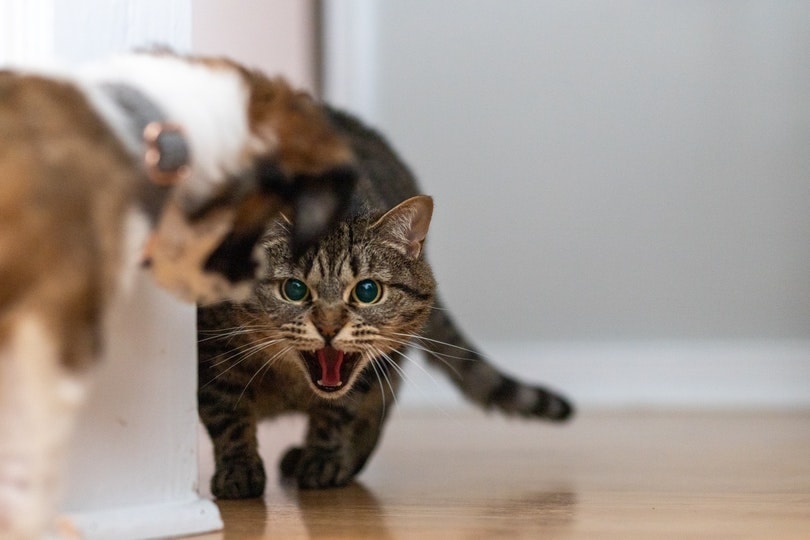
6. The Litter Box Is Dirty
Cats are very clean creatures. A lot of cats will avoid using the litter box if it has not been cleaned to their standards. Dirty litter boxes are a huge deterrent, and they will seek out a private, clean area that is comfortable enough to relieve themselves in. The sink may just be the go-to when the litter box cleaning has not been properly kept.
What You Can Do
Thankfully, this solution is quite simple. Clean the litter box regularly to ensure it is not full of waste. If your cat has always been litter-trained and you have not experienced any prior issues, it should be easy to rectify with simple maintenance. It is important to keep in mind that once cats find a comfortable area to go, they may keep resorting to that spot.
If you have done all you can to ensure that your cat’s litter box is clean but they still use the sink, it’s time for some deterrents. Try cleaning your sink with a citrus-smelling cleaner, as citrus can be a deterrent for cats due to the smell alone. If that does not work, try putting something in the sink that prevents them from being able to get into it and do their business.
7. Avoiding New Type of Litter
Have you recently changed the type of litter you use in the litter box? If so, this could be a reason your cat has decided to go elsewhere. Cats are finicky and can be sensitive to textures and smells. If you have made a drastic change, such as going from clay litter to something like pine or crystals, this could be the reason. Some pickier cats could even be deterred by even smaller changes, such as a brand switch.
What You Can Do
If you have determined that your cat began using the sink to do his or her business after a change in litter, you may want to resort back to the litter that made them comfortable or opt for another choice altogether.
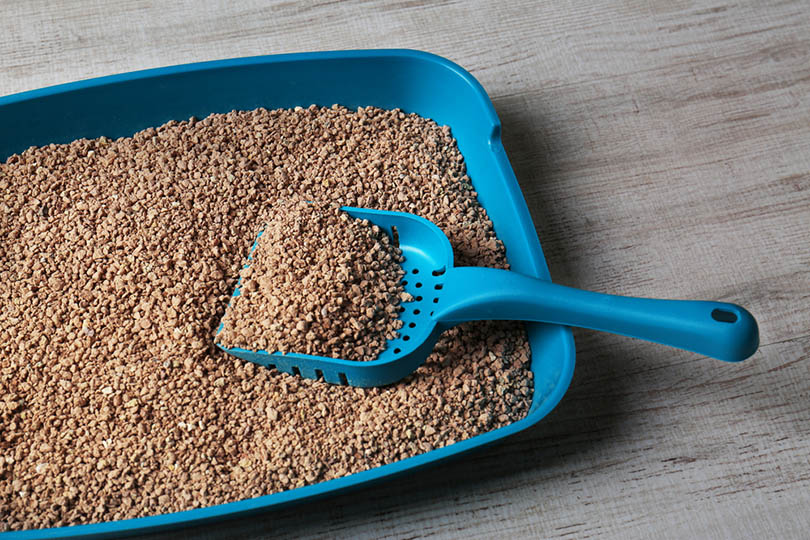
Conclusion
As you can see, many different factors can play a role in your cat’s sink-peeing habits. The best course of action is to be aware of the potential causes, conclude which is most likely to be the source of your cat’s issues, and use the different methods and resources available to help break the habit.
Keeping in touch with your veterinarian any time your cat experiences a change in behavioral patterns is important for your cat’s overall health. A licensed veterinarian can not only help rule out any medical issues but will be able to provide you with the best advice on handling your cat’s situation on a more personal level.
Related Read:
- Why Is Your Cat Peeing in the Laundry Basket? 9 Possible Reasons
- How To Get Rid of Cat Litter Box Smell – 8 Tips to Eliminate Odor
Featured Image Credit: Jan Hrib, Shutterstock


